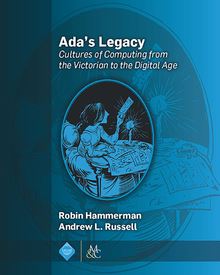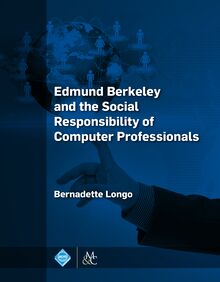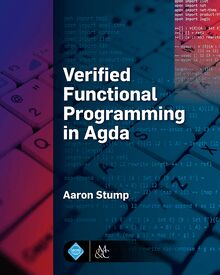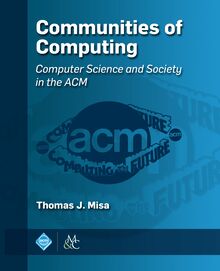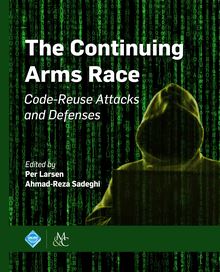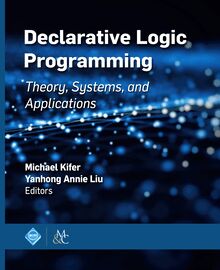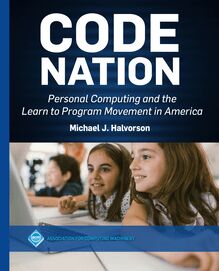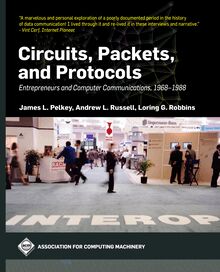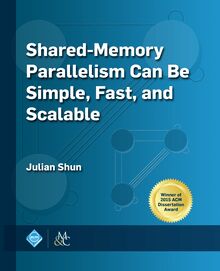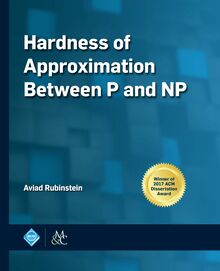-
 Univers
Univers
-
 Ebooks
Ebooks
-
 Livres audio
Livres audio
-
 Presse
Presse
-
 Podcasts
Podcasts
-
 BD
BD
-
 Documents
Documents
-
- Cours
- Révisions
- Ressources pédagogiques
- Sciences de l’éducation
- Manuels scolaires
- Langues
- Travaux de classe
- Annales de BEP
- Etudes supérieures
- Maternelle et primaire
- Fiches de lecture
- Orientation scolaire
- Méthodologie
- Corrigés de devoir
- Annales d’examens et concours
- Annales du bac
- Annales du brevet
- Rapports de stage
La lecture à portée de main
Vous pourrez modifier la taille du texte de cet ouvrage
Découvre YouScribe en t'inscrivant gratuitement
Je m'inscrisThe Continuing Arms Race , livre ebook
Découvre YouScribe en t'inscrivant gratuitement
Je m'inscrisEn savoir plus
Vous pourrez modifier la taille du texte de cet ouvrage
En savoir plus

Description
As human activities moved to the digital domain, so did all the well-known malicious behaviors including fraud, theft, and other trickery. There is no silver bullet, and each security threat calls for a specific answer. One specific threat is that applications accept malformed inputs, and in many cases it is possible to craft inputs that let an intruder take full control over the target computer system.
The nature of systems programming languages lies at the heart of the problem. Rather than rewriting decades of well-tested functionality, this book examines ways to live with the (programming) sins of the past while shoring up security in the most efficient manner possible. We explore a range of different options, each making significant progress towards securing legacy programs from malicious inputs.
The solutions explored include enforcement-type defenses, which excludes certain program executions because they never arise during normal operation. Another strand explores the idea of presenting adversaries with a moving target that unpredictably changes its attack surface thanks to randomization. We also cover tandem execution ideas where the compromise of one executing clone causes it to diverge from another thus revealing adversarial activities. The main purpose of this book is to provide readers with some of the most influential works on run-time exploits and defenses. We hope that the material in this book will inspire readers and generate new ideas and paradigms.
Table of Contents: Preface / 1. How Memory Safety Violations Enable Exploitation of Programs / 2. Protecting Dynamic Code / 3. Diversity and Information Leaks / 4. Code-Pointer Integrity / 5. Evaluating Control-Flow Restricting Defenses / 6. Attacking Dynamic Code / 7. Hardware Control Flow Integrity / 8. Multi-Variant Execution Environments / References / Contributor Biographies
Sujets
Informations
| Publié par | Association for Computing Machinery and Morgan & Claypool Publishers |
| Date de parution | 23 février 2018 |
| Nombre de lectures | 0 |
| EAN13 | 9781970001822 |
| Langue | English |
| Poids de l'ouvrage | 3 Mo |
Informations légales : prix de location à la page 0,3598€. Cette information est donnée uniquement à titre indicatif conformément à la législation en vigueur.
Extrait
The Continuing Arms Race
ACM Books
Editor in Chief
M. Tamer zsu, University of Waterloo
ACM Books is a new series of high-quality books for the computer science community, published by ACM in collaboration with Morgan Claypool Publishers. ACM Books publications are widely distributed in both print and digital formats through booksellers and to libraries (and library consortia) and individual ACM members via the ACM Digital Library platform.
The Continuing Arms Race: Code-Reuse Attacks and Defenses
Editors: Per Larsen, Immunant, Inc .
Ahmad-Reza Sadeghi, Technische Universit t Darmstadt
2018
Frontiers of Multimedia Research
Editor: Shih-Fu Chang, Columbia University
2018
Shared-Memory Parallelism Can Be Simple, Fast, and Scalable
Julian Shun, University of California, Berkeley
2017
Computational Prediction of Protein Complexes from Protein Interaction Networks
Sriganesh Srihari, The University of Queensland Institute for Molecular Bioscience
Chern Han Yong, Duke-National University of Singapore Medical School
Limsoon Wong, National University of Singapore
2017
The Handbook of Multimodal-Multisensor Interfaces, Volume 1: Foundations, User Modeling, and Common Modality Combinations
Editors: Sharon Oviatt, Incaa Designs
Bj rn Schuller, University of Passau and Imperial College London
Philip R. Cohen, Voicebox Technologies
Daniel Sonntag, German Research Center for Artificial Intelligence (DFKI)
Gerasimos Potamianos, University of Thessaly
Antonio Kr ger, German Research Center for Artificial Intelligence (DFKI)
2017
Communities of Computing: Computer Science and Society in the ACM
Thomas J. Misa, Editor, University of Minnesota
2017
Text Data Management and Analysis: A Practical Introduction to Information Retrieval and Text Mining
ChengXiang Zhai, University of Illinois at Urbana-Champaign
Sean Massung, University of Illinois at Urbana-Champaign
2016
An Architecture for Fast and General Data Processing on Large Clusters
Matei Zaharia, Stanford University
2016
Reactive Internet Programming: State Chart XML in Action
Franck Barbier, University of Pau, France
2016
Verified Functional Programming in Agda
Aaron Stump, The University of Iowa
2016
The VR Book: Human-Centered Design for Virtual Reality
Jason Jerald, NextGen Interactions
2016
Ada s Legacy: Cultures of Computing from the Victorian to the Digital Age
Robin Hammerman, Stevens Institute of Technology
Andrew L. Russell, Stevens Institute of Technology
2016
Edmund Berkeley and the Social Responsibility of Computer Professionals
Bernadette Longo, New Jersey Institute of Technology
2015
Candidate Multilinear Maps
Sanjam Garg, University of California, Berkeley
2015
Smarter Than Their Machines: Oral Histories of Pioneers in Interactive Computing
John Cullinane, Northeastern University; Mossavar-Rahmani Center for Business and Government, John F. Kennedy School of Government, Harvard University
2015
A Framework for Scientific Discovery through Video Games
Seth Cooper, University of Washington
2014
Trust Extension as a Mechanism for Secure Code Execution on Commodity Computers
Bryan Jeffrey Parno, Microsoft Research
2014
Embracing Interference in Wireless Systems
Shyamnath Gollakota, University of Washington
2014
The Continuing Arms Race
Code-Reuse Attacks and Defenses
Per Larsen
Immunant, Inc .
Ahmad-Reza Sadeghi
Technische Universit t Darmstadt
ACM Books #18
Copyright 2018 by the Association for Computing Machinery and Morgan Claypool Publishers
All rights reserved. No part of this publication may be reproduced, stored in a retrieval system, or transmitted in any form or by any means-electronic, mechanical, photocopy, recording, or any other except for brief quotations in printed reviews-without the prior permission of the publisher.
Designations used by companies to distinguish their products are often claimed as trademarks or registered trademarks. In all instances in which Morgan Claypool is aware of a claim, the product names appear in initial capital or all capital letters. Readers, however, should contact the appropriate companies for more complete information regarding trademarks and registration.
The Continuing Arms Race
Per Larsen, Ahmad-Reza Sadeghi, editors
books.acm.org
www.morganclaypoolpublishers.com
ISBN: 978-1-97000-183-9 hardcover
ISBN: 978-1-97000-180-8 paperback
ISBN: 978-1-97000-181-5 eBook
ISBN: 978-1-97000-182-2 ePub
Series ISSN: 2374-6769 print 2374-6777 electronic
DOIs:
10.1145/3129743 Book
10.1145/3129743.3129744 Preface
10.1145/3129743.3129745 Chapter 1
10.1145/3129743.3129746 Chapter 2
10.1145/3129743.3129747 Chapter 3
10.1145/3129743.3129748 Chapter 4
10.1145/3129743.3129749 Chapter 5
10.1145/3129743.3129750 Chapter 6
10.1145/3129743.3129751 Chapter 7
10.1145/3129743.3129752 Chapter 8
10.1145/3129743.3129753 References
A publication in the ACM Books series, #18
Editor in Chief: M. Tamer zsu, University of Waterloo
First Edition
10 9 8 7 6 5 4 3 2 1
Contents
Preface
Chapter 1 How Memory Safety Violations Enable Exploitation of Programs
Mathias Payer
1.1 Memory Safety
1.2 Data Integrity
1.3 Confidentiality
1.4 Data-Flow and Control-Flow Integrity
1.5 Policy Enforcement
1.6 An Adversary s Toolkit
1.7 Conclusion
Chapter 2 Protecting Dynamic Code
Gang Tan, Ben Niu
2.1 Overview of Challenges and Solutions
2.2 Type-Based CFG Generation
2.3 Handling Dynamically Linked Libraries
2.4 Handling Just-In-Time Compiled Code
2.5 Related Work
2.6 Conclusion
Chapter 3 Diversity and Information Leaks
Stephen Crane, Andrei Homescu, Per Larsen, Hamed Okhravi, Michael Franz
3.1 Software Diversity
3.2 Information Leakage
3.3 Mitigating Information Leakage
3.4 Address Oblivious Code Reuse
3.5 Countering Address-Oblivious Code Reuse
3.6 Evaluation of Code-Pointer Authentication
3.7 Conclusion
Chapter 4 Code-Pointer Integrity
Volodymyr Kuznetzov, L szl Szekeres, Mathias Payer, George Candea, R. Sekar, Dawn Song
4.1 Introduction
4.2 Related Work
4.3 Threat Model
4.4 Design
4.5 The Formal Model of CPI
4.6 Implementation
4.7 Evaluation
4.8 Conclusion
Chapter 5 Evaluating Control-Flow Restricting Defenses
Enes G kta s, Elias Athanasopoulos, Herbert Bos, Georgios Portokalidis
5.1 Introduction
5.2 Control-Flow Restricting Defenses
5.3 Security Analysis
5.4 Quantifying Gadget Availability in CFR
5.5 Proof-of-Concept Exploit against CFR
5.6 Summary
Chapter 6 Attacking Dynamic Code
Felix Schuster, Thorsten Holz
6.1 Goals and Attacker Model
6.2 Counterfeit Object-Oriented Programming
6.3 Loopless Counterfeit Object-Oriented Programming
6.4 A Framework for Counterfeit Object-Oriented Programming
6.5 Proof-of-Concept Exploits
6.6 Discussion
6.7 Security Assessment of Existing Defenses
6.8 Conclusion
Chapter 7 Hardware Control Flow Integrity
Yier Jin, Dean Sullivan, Orlando Arias, Ahmad-Reza Sadeghi, Lucas Davi
7.1 Introduction
7.2 Threat Model and Assumptions
7.3 Requirements
7.4 Modeling CFI
7.5 Constructing a Precise Stateful CFI Policy
7.6 Hardware-Enhanced CFI: Design and Implementation
7.7 Security Evaluation
7.8 Performance Evaluation
7.9 Related Work
7.10 Conclusion
Chapter 8 Multi-Variant Execution Environments
Bart Coppens, Bjorn De Sutter, Stijn Volckaert
8.1 General Design of an MVEE
8.2 Implementation of GHUMVEE
8.3 Inconsistencies and False Positive Detections
8.4 Comprehensive Protection against Code-Reuse Attacks
8.5 Relaxed Monitoring
8.6 Evaluation
8.7 Conclusion
References
Contributor Biographies
Preface
Our societies are becoming increasingly dependent on emerging technologies and connected computer systems that are increasingly trusted to store, process, and transmit sensitive data. While generally beneficial, this shift also raises many security and privacy challenges. The growing complexity and connectivity offers adversaries a large attack surface. In particular, the connection to the Internet facilitates remote attacks without the need for physical access to the targeted computing platforms. Attackers exploit security vulnerabilities in modern software with the ultimate goal of taking control over the underlying computing platforms. There are various causes of these vulnerabilities, the foremost being that the majority of software (including operating systems) is written in unsafe programming languages (mainly C and C++) and by developers who are by-and-large not security experts.
Memory errors are a prominent vulnerability class in modern software: they persist for decades and still are used as the entry point for today s state-of-the-art attacks. The canonical example of a memory error is the stack-based buffer overflow vulnerability, where the adversary overflows a local buffer on the stack, and overwrites a function s return address. While modern defenses protect against this attack strategy, many other avenues for exploitation exist, including those that leverage heap, format string, or integer overflow vulnerabilities.
Given a memory vulnerability in the program, the adversary typically provides a malicious input that exploits this vulnerability to trigger malicious program actions not intended by the benign program. This class of exploits aims to hijack the control flow of the program and differs from conventional malware, which encapsulates the malicious code inside a dedicated executable that needs to be executed on the target system and typically requires no exploitation of a program bug.
As mentioned above, the continued success of these attacks is mainly attributed to the fact that large portions of software programs are implemented in type-unsafe languages (C, C++, or Objective-C) that do not guard against malicious program inputs using bounds checking, automatic memory management, etc. However, even type-safe languages like Java rely on virtual machines and complex runti
-
 Univers
Univers
-
 Ebooks
Ebooks
-
 Livres audio
Livres audio
-
 Presse
Presse
-
 Podcasts
Podcasts
-
 BD
BD
-
 Documents
Documents
-
Jeunesse
-
Littérature
-
Ressources professionnelles
-
Santé et bien-être
-
Savoirs
-
Education
-
Loisirs et hobbies
-
Art, musique et cinéma
-
Actualité et débat de société
-
Jeunesse
-
Littérature
-
Ressources professionnelles
-
Santé et bien-être
-
Savoirs
-
Education
-
Loisirs et hobbies
-
Art, musique et cinéma
-
Actualité et débat de société
-
Actualités
-
Lifestyle
-
Presse jeunesse
-
Presse professionnelle
-
Pratique
-
Presse sportive
-
Presse internationale
-
Culture & Médias
-
Action et Aventures
-
Science-fiction et Fantasy
-
Société
-
Jeunesse
-
Littérature
-
Ressources professionnelles
-
Santé et bien-être
-
Savoirs
-
Education
-
Loisirs et hobbies
-
Art, musique et cinéma
-
Actualité et débat de société
- Cours
- Révisions
- Ressources pédagogiques
- Sciences de l’éducation
- Manuels scolaires
- Langues
- Travaux de classe
- Annales de BEP
- Etudes supérieures
- Maternelle et primaire
- Fiches de lecture
- Orientation scolaire
- Méthodologie
- Corrigés de devoir
- Annales d’examens et concours
- Annales du bac
- Annales du brevet
- Rapports de stage

